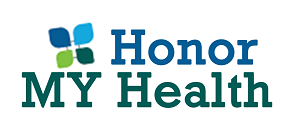
When you or someone in your family notes a digestive disorder that cannot be corrected with over-the-counter drugs and that does not go away on its own, you should seek immediate medical attention. It is necessary to visit not only a general practitioner but also a gastroenterologist for diagnosis and the necessary treatment. If you suspect inflammatory bowel diseases, it is recommended to see a gastroenterologist who specializes in IBD.
Let’s dig deeper into this and see treatments methods available to get rid of IBD:
Treatment methods
After establishing an accurate diagnosis, the doctor will suggest effective therapy to reduce IBD. Well, all the medications and the tests of IBD completely depend upon the degree of development of the disease. For treatment to be effective, a person with IBD must follow a specific diet.
Etiotropic therapy
This IBD therapy is prescribed to address the underlying main cause of the disease. If it consists of the defeat of the body by pathogenic bacteria, then the patient is credited with taking antibiotics. With the helminthic invasion, antihelminthic tablets (albendazole, piperazine) are prescribed. If the reason for IBD is autoimmune, then immunosuppressants are recommended for treatment.
Pathogenetic therapy
For the proper treatment of IBD, it is necessary to relieve inflammation in the intestines. For this purpose, anti-inflammatory medications and sorbents that bind toxins are used. Pathogenetic therapy for IBD also includes medications that contain enzymes.
Diet
Well organized nutrition in the treatment of gastrointestinal diseases is of great importance. For a prompt medicine of the disease, it is important to have dishes that lessen the load on the mucous membrane of the diseased organ. Meal for inflammatory bowel diseases is fractional – 5-6 times a day. The patient’s menu should be loaded with proteins, and fats and carbohydrates in it should be reduced.
With IBD, it is advised to include vegetables, fruits, lean meat, black bread, and low-fat dairy products in the diet. You cannot eat fried, smoked, spicy foods. It is good to cook food for a patient with intestinal inflammation, steam it. It is useful for this condition to eat foods saturated with potassium and calcium. With IBD, the regular salt intake must be reduced to 6-8 g.
An IBD patient should drink 2 liters of water daily. Here is a list of suggested meals and products for TCD:
- Low-fat soups;
- Vegetable decoctions;
- Compotes;
- Juices containing tanning components;
- Dishes from veal, lean beef;
- Chicken cutlets, meatballs, soufflé;
- Fish dishes;
- Cheese, low-fat cottage cheese.
How IBD Passport can help you? Are you worried about Travelling with Crohn’s Disease? Of course, you are! But, not keep aside all your worry and have a look at our quick video in which Kay Greveson explains all about IBD Passport so you can travel with confidence.

